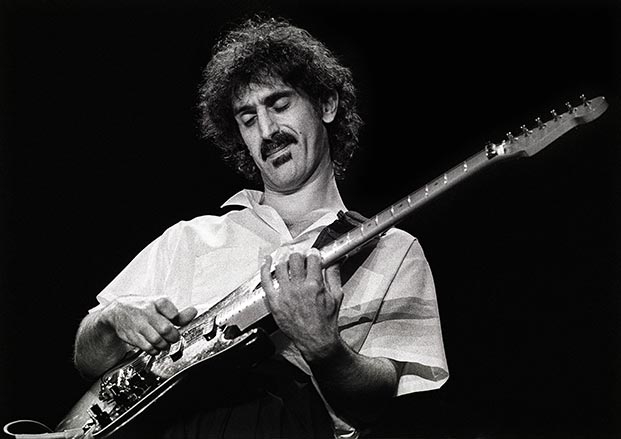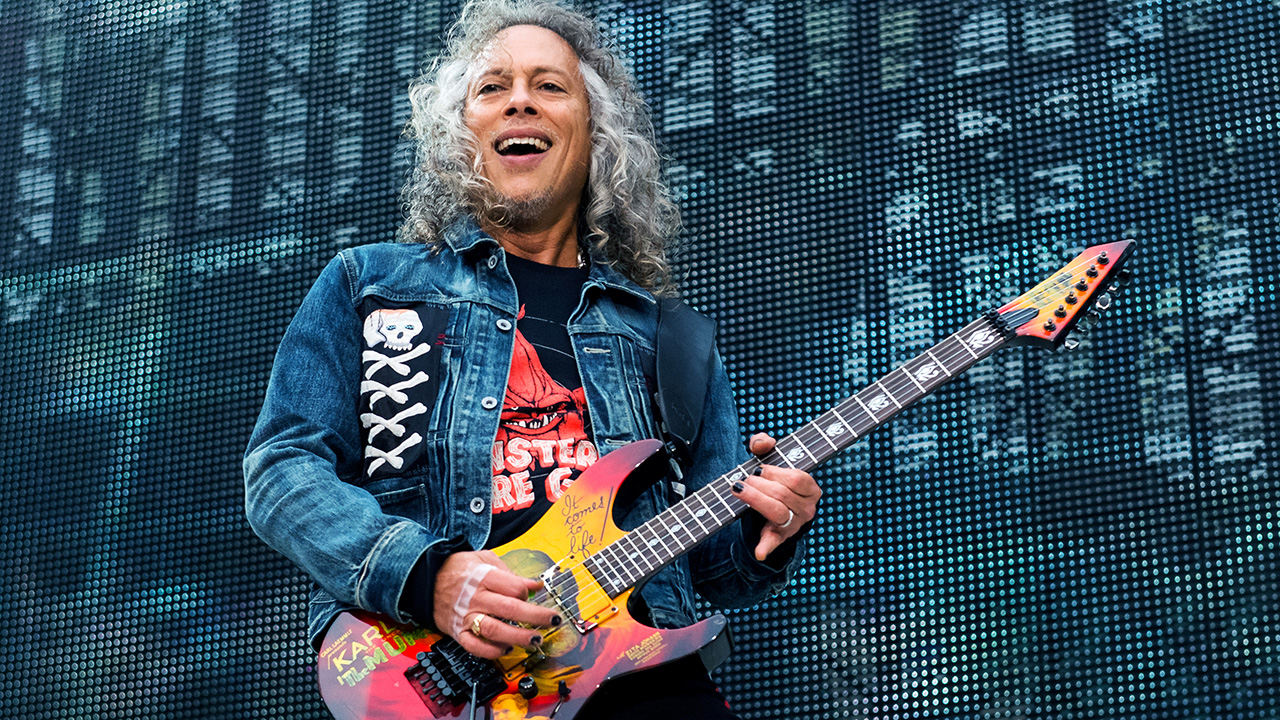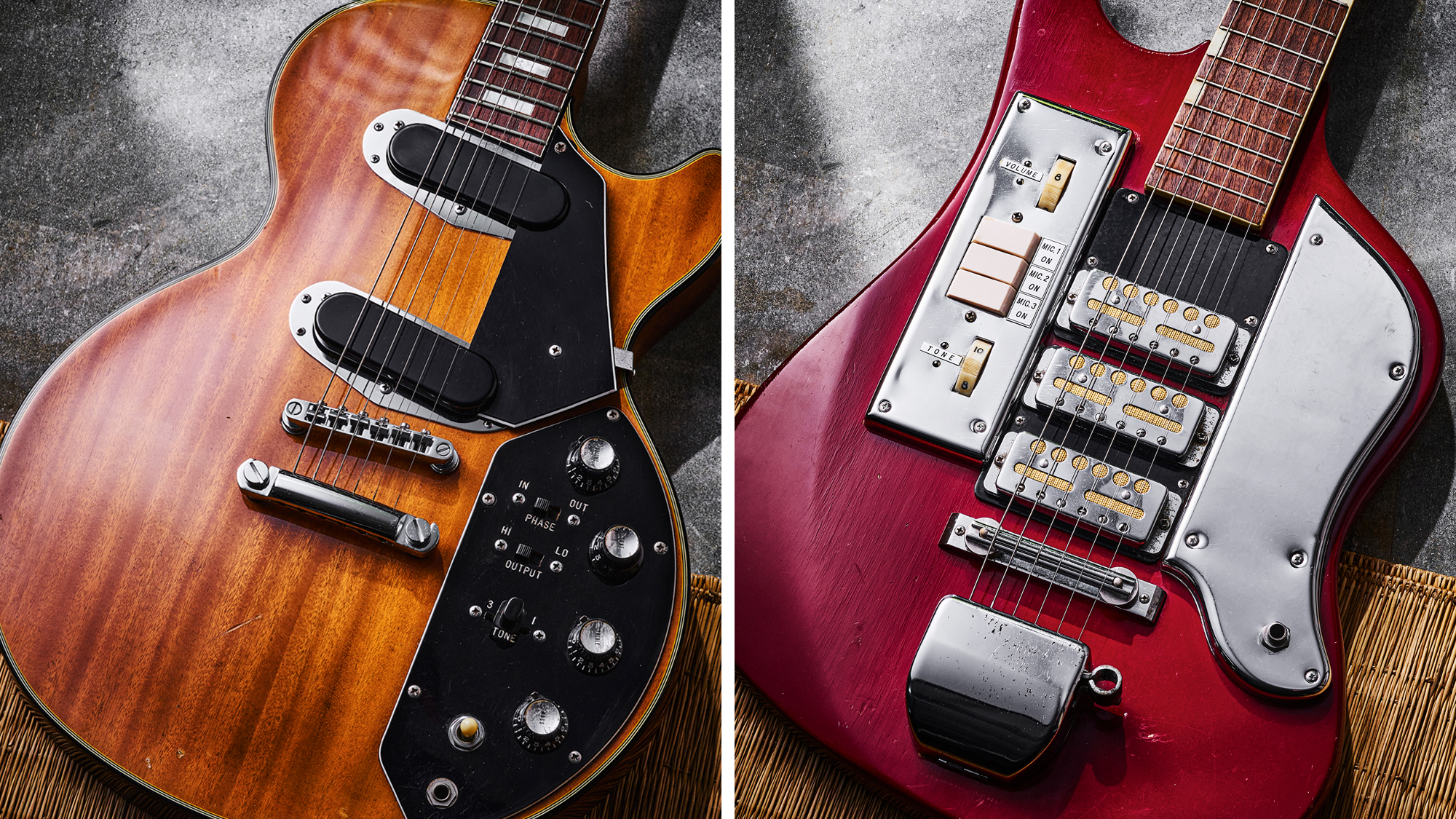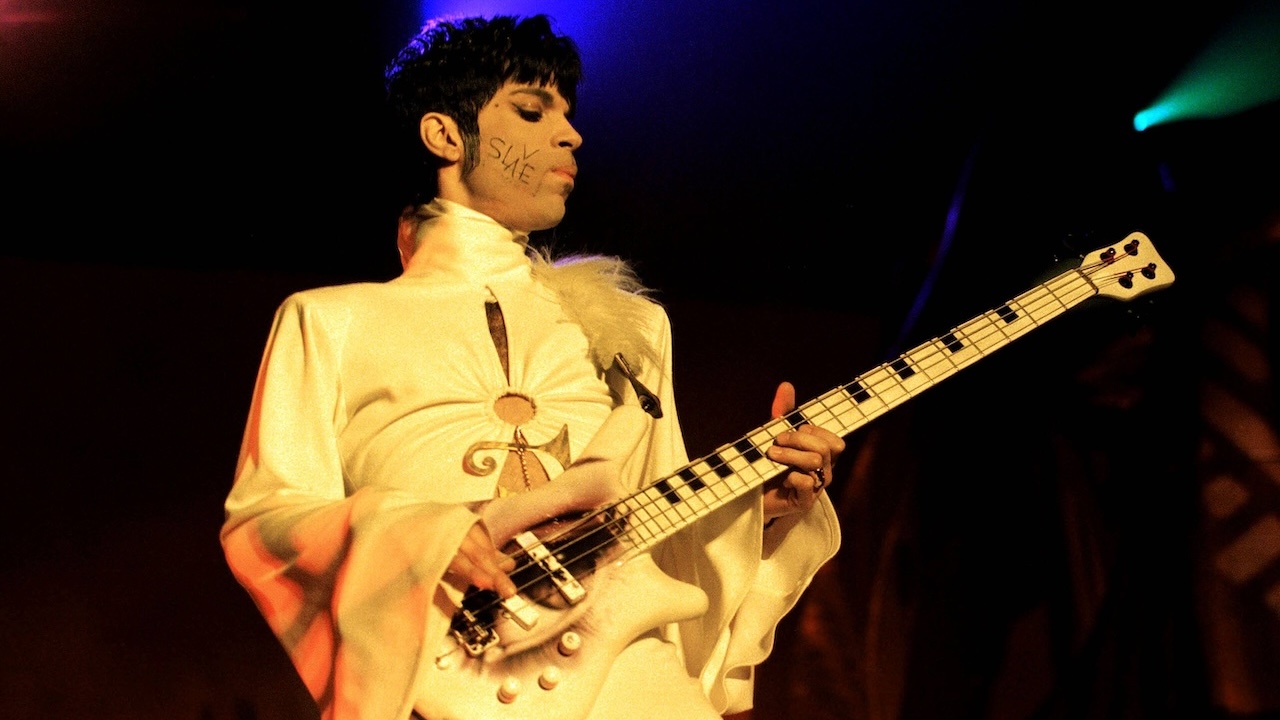15 of Prog-Rock's Best Guitarists Through the Years

When it first blew through America in the mid-Fifties, rock music’s main calling card was its simplicity.
Thumbing its nose at the lavish arrangements typical of the pop music of the day, rock thrived on volume, rhythm and excitement. Of course, in order to survive, rock couldn’t simply rely on its roots indefinitely.
As the Beatles began to take mainstream audiences on journeys to uncharted musical waters (and further underground), some bands began to chuck the rock-music rulebook entirely.
In New York City, the Velvet Underground incorporated pop art, noise and drones into their otherwise conventional pop songs. In California, the Grateful Dead mixed their rootsy, proto-Americana tunes with extended improvisation and free-form jamming.
All of these branches swung the doors open for the full-blown experimentation of progressive rock, a genre defined by ambition, complexity and some of music’s all-time six-string greats.
Here, we present 15 of the best progressive rock guitarists through the years. Enjoy—and feel free to recommend others in the comments below.
FRANK ZAPPA
Get The Pick Newsletter
All the latest guitar news, interviews, lessons, reviews, deals and more, direct to your inbox!
No list of progressive rock guitarists, or guitarists as a whole, is complete without Frank Zappa. A true musician who was never afraid (and often all too eager to) offend, or challenge any convention, he constantly flouted the boundaries between genres. On a dime, he could switch from absurd, funk-laden pop, to devoted recreations of the Fifties R&B he so loved, to dizzyingly complicated, classical-influenced passages. It’s hard to find a guitarist who cast a wider musical net.
ROBERT FRIPP | KING CRIMSON
Though King Crimson has swung wildly from one sound and concept to another over the past half-century, the prog pioneers have had one constant: Robert Fripp. Fripp, the band’s intellectual and creative powerhouse, has constantly eschewed both expectation and convention, using his astonishing chops to forge a sound and identity that is at once both unique and unmistakable.
STEVE HOWE | YES
For over 45 years, Yes have been one of progressive rock’s titans. Their records have featured extraordinary playing from numerous musicians, Steve Howe certainly being among them. Howe has been with the group for all but a handful of years since 1970, in doing so lending his eclectic influences and tastes to the band’s sound. Howe was instrumental in creating prog classics like “Roundabout,” and the influence of his playing can be heard across genres to this day.
STEVE HACKETT | GENESIS
It’s unfortunate that when most people think of Genesis, they immediately picture either Peter Gabriel or Phil Collins. Though entirely worthy of their immense success, Gabriel and Collins have overshadowed the contributions of Genesis’ early guitarist, Steve Hackett, in the public eye. Hackett’s early explorations of two-handed tapping and sweep picking were far ahead of their time, and influenced Eddie Van Halen and Brian May, among countless others.
JOHN McLAUGHLIN | MAHAVISHNU ORCHESTRA
Miles Davis was somewhat infamous for not giving the musicians he worked and collaborated with a lot of credit for their contributions. So, the fact that a track on Davis’ landmark fusion LP, Bitches Brew, is simply named “John McLaughlin,” speaks volumes to how highly regarded McLaughlin’s playing was in both jazz and rock circles. Once on his own, McLaughlin continued innovating with the groundbreaking Mahavishnu Orchestra, who played a huge role in the jazz fusion movement. Few guitarists were as good at blending previously incompatible sounds.
TODD RUNDGREN | UTOPIA
A reliably unpredictable jack-of-all-trades, Todd Rundgren has spent the last four and a half decades wearing all sorts of musical hats. On Utopia’s Deface the Music, he paid tribute to, and emulated the sound of the Beatles so closely that one of the tracks (written for the film Roadie) was rejected out of a fear of lawsuits. Before then, of course, he had piloted Utopia through their years as prog-rock pioneers, and then unlikely new wave hit-makers. Few other musicians have as fascinating a resume.
ALLAN HOLDSWORTH
Many guitarists on this list have made their mark primarily by executing blazing solos in front of arenas full of screaming fans. Allan Holdsworth, however, is one of those musicians whose influence is infinitely greater than the amount of platinum records he has been involved with. His back catalog, and list of collaborators, is immense. Incorporating numerous scales and complex chord progressions into his jazz-inflected playing, Holdsworth has been a huge influence on Eddie Van Halen, Shawn Lane, Yngwie Malmsteen and countless others.
ALEX LIFESON | RUSH
Chops-worshipping fans have long heralded Alex Lifeson, drummer Neil Peart and bassist-singer Geddy Lee for their supreme instrumental skills, but the intriguing thing about Rush is the way they deliver the goods without infantilizing their musicianship. Their razzle-dazzle never seems as if it’s tossed off to satisfy some demand for immediate gratification; it has grace and purpose. Take, for example, "Jacob's Ladder" ...
ADRIAN BELEW | KING CRIMSON
Robert Fripp may be the name most associated with King Crimson, but the influence of Adrian Belew on the band’s post-1981 material cannot be discounted. As the band’s frontman and second guitarist, it was Belew who was responsible for bringing Fripp’s ideas to light, which he did with aplomb. Belew has brought a fearless attitude to each and every one of his many projects, exploring and creating otherworldly sounds most would never dream of crafting on a six-string.
TREVOR RABIN | YES
Few guitarists have the talent to fill shoes as big as Steve Howe’s, but Trevor Rabin happens to be one of them. While Howe left to form the early Eighties super group Asia, Rabin teamed up with bassist Chris Squire, drummer Alan White and (later) vocalist Jon Anderson. Though Rabin was initially apprehensive about the new band’s decision to adopt the Yes name, the new lineup was more than worthy of it. Rabin’s compositions and powerful guitar playing helped Yes move seamlessly into more pop-friendly territory, and introduced the band to millions of new fans.
STEVEN WILSON | PORCUPINE TREE
Taking cues from ambient and psychedelic music, Steven Wilson breathed fresh air into the increasingly staid prog rock genre with his band Porcupine Tree in the early 1990s. Ignoring the oft-dramatic elements of prog in favor of more ethereal vibes, Porcupine Tree’s music was incredibly forward-looking, while still blending quite well with the popular music of the time. Though he has repeatedly disavowed the comparison, Wilson has often been labeled as the heir to Pink Floyd’s legacy, and with good reason.
JOHN PETRUCCI | DREAM THEATER
Often seen as one of the leading figures of progressive metal, John Petrucci, with his band Dream Theater, has left an intangible mark. Focusing more on technique and complexity than speed and power, Petrucci created a sound that has been emulated by countless guitarists over the last two decades. His intricately detailed six-string work helps convey the often complex themes and narratives in Dream Theater’s music, and played a large part in changing the world’s conception of metal.
ALAN MORSE | SPOCK’S BEARD
Since their beginning in the mid-Nineties, Spock’s Beard have been this era’s answer to bands like Genesis. They even have a similar story with singer and main/songwriter Neal Morse leaving the group and having the drummer take over as singer. Now with their third singer, the band have continued to produce great Prog albums, most recently 2015’s The Oblivion Particle. Original guitarist Alan Morse has remained the linchpin between all the lineups, with his signature finger-picking shredding-style and is one of the genre’s most underrated guitarists.
RICHARD HENSHALL, CHARLIE GRIFFITHS | HAKEN
Formed in 2007, London-based prog metal group Haken have quickly climbed to the top of the new prog heap based on the success of their 2013 breakthrough, The Mountain. Their new album, Affinity, takes the band’s creativity even further, combining their wide-ranging influences from Seventies prog to djent, even borrowing from the Eighties on the track “1985." Richard Henshall and Charlie Griffiths take turns as lead guitarists, showcasing their diversity through metal epics like the 15-minute “The Architect” or the pop-flavored “Earthside." The group has toured with bands like Between the Buried and Me and Leprous, and hit the U.S. for a headlining tour with Thank You Scientist starting August 30.
JIM MATHEOS | FATES WARNING
One of the pioneering groups of the progressive metal movement, Fates Warning formed in 1982 under guitarist and main songwriter Jim Matheos. The band found commercial success in the Nineties with albums like Parallels and Inside Out, before venturing into darker, more progressive territory with 1997’s A Pleasant Shade of Grey. Through it all, Matheos has been the band’s driving force and is highly regarded as one of the most influential guitarists of his era. The band’s new album, Theories of Flight, was released earlier this year and was their best-selling album in almost two decades with Matheos still at the helm.
ROINE STOLT | ANDERSON/STOLT
Jon Anderson returned to prog with the new album Invention of Knowledge, partnering with guitarist Roine Stolt. Stolt is known for his work as leader of the Swedish outfit the Flower Kings, as well as with Prog supergroup Transatlantic, which includes Mike Portnoy. Anderson and Stolt decided to join forces after Jon joined Transatlantic for a set of Yes classics on 2014’s Prog Nation at Sea Cruise. On their new album, Stolt composed much of the music around Anderson’s lyrical melodies and ideas, resulting in what many are calling Anderson’s return to the style of Yes music he helped create. Stolt was also on tour with Steve Hackett earlier this year, joining the band on bass.
Since 1980, Guitar World has been the ultimate resource for guitarists. Whether you want to learn the techniques employed by your guitar heroes, read about their latest projects or simply need to know which guitar is the right one to buy, Guitar World is the place to look.
“Tom would say, ‘Play your guitar with a car key.’ It was very experimental”: Little Feat's Fred Tackett recalls Tom Waits' left-field approach to guitar playing – and his one-of-a-kind studio sessions
“Seeing friends and heroes of mine having their solos plagiarized broke my heart”: Giacomo Turra used their solos note-for-note for his own viral content. Now the guitarists who had their playing “stolen” are speaking out











